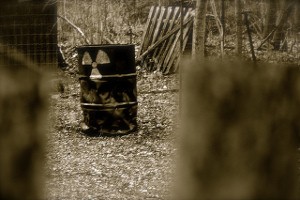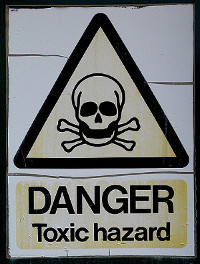 There’s a reason oven cleaners you can obtain around the counter are already infamous. Inhaling oven cleaning fumes after cleaning has been known as quite dangerous, resulting in painful cough and sore throat. Reading the sticker you might find that ingesting them is lethal. So how come they are so toxic and yet easily acquirable? Why are they marketed as something that you can clean your stove with if in it is where you cook food for yourself and your family? Are these fumes there to stay and are over cleaner dangers underrated?
There’s a reason oven cleaners you can obtain around the counter are already infamous. Inhaling oven cleaning fumes after cleaning has been known as quite dangerous, resulting in painful cough and sore throat. Reading the sticker you might find that ingesting them is lethal. So how come they are so toxic and yet easily acquirable? Why are they marketed as something that you can clean your stove with if in it is where you cook food for yourself and your family? Are these fumes there to stay and are over cleaner dangers underrated?
All good questions and it’s time we give you some answers by getting to the bottom of it.
The truth about oven cleaner fumes
 It does not matter if it’s sold as no fume oven cleaner or not. They are toxic to humans for a good reason. See, the active ingredient is concentrated lye (caustic alkali, also known as a base). When the stuff is concentrated it is highly corrosive to organic materials. Guess what persistent food deposits in your oven are. Precisely, a success oven cleaner should be able to dissolve them. Unfortunately humans are also entirely organic material. This is why it is of utmost importance to use protective gear when using the nasty chemicals.
It does not matter if it’s sold as no fume oven cleaner or not. They are toxic to humans for a good reason. See, the active ingredient is concentrated lye (caustic alkali, also known as a base). When the stuff is concentrated it is highly corrosive to organic materials. Guess what persistent food deposits in your oven are. Precisely, a success oven cleaner should be able to dissolve them. Unfortunately humans are also entirely organic material. This is why it is of utmost importance to use protective gear when using the nasty chemicals.
Oven cleaner poisoning is very common although fatal cases are a rarity. You are probably wondering why would anyone use such thing in their stove or anywhere else in the house for that matter. The thing with lye is that it is only dangerous if it’s a concentrate. If it is dilute enough (which is what happens after you clean it off) it is completely safe and harmless. Turning on the oven for a couple of minutes after the cleansing will pretty much eliminate what’s left. After-fumes are also harmless so long as you’ve carefully wiped the cleaner off. The old cliché of “the dose makes the poison” applies here.
A rather fun fact is that lye is also used in some food processing such as making olives less bitter or in the making of pretzels.
The importance of oven cleaning
Regular oven cleaning is important for maintaining hygiene, preventing the buildup of grease, and ensuring your oven functions efficiently. Over time, food residue can cause unpleasant odours, smoke, and even fire hazards. Cleaning your oven regularly not only prolongs its lifespan but also enhances cooking results and ensures safety.
Conclusion
Oven cleaners fumes are toxic, but they are mostly caustic. After the cleaning is done the chemicals are gone and since it’s not the Natrium or Potassium causing the damage, small amounts of the active ingredient are not a threat.


